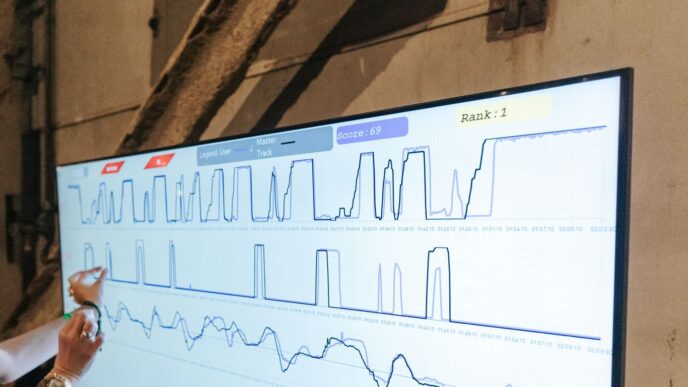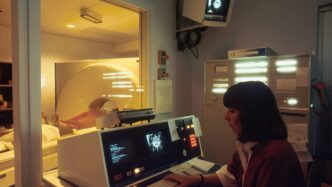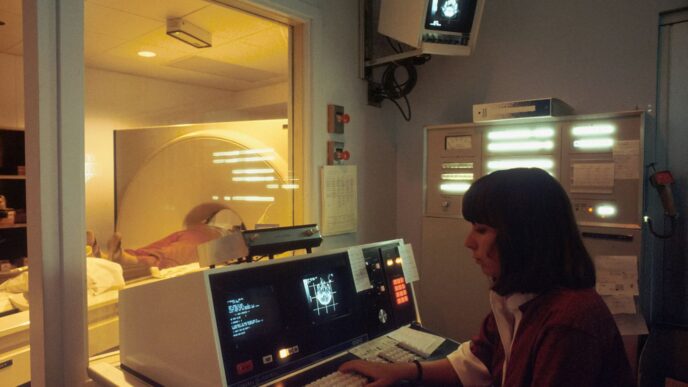You might think that with all the fancy new tech out there, old-school doctor pagers would be totally out of the picture. But you’d be surprised. Turns out, these little devices are still a big deal in hospitals and clinics. Let’s take a look at why doctor pagers haven’t gone the way of the fax machine just yet.
Key Takeaways
- Doctor pagers offer a dependable way to get urgent messages, especially when cell service is spotty.
- Their simple design makes them easy for anyone to use, cutting down on confusion.
- For doctors working in remote spots or areas with bad reception, doctor pagers are a reliable communication tool.
- Compared to newer gadgets, doctor pagers are often cheaper to buy and maintain.
- These devices can work alongside smartphones, giving healthcare teams flexible options for staying in touch.
The Enduring Relevance Of Doctor Pagers
It might seem old-fashioned in our smartphone-obsessed world, but doctor pagers are still a big deal in hospitals and clinics. Think about it: when a patient is crashing or there’s a code blue, you don’t want your communication device to be stuck searching for a signal or running out of battery. Pagers just work, plain and simple.
Reliability In Critical Moments
When every second counts, a pager’s ability to cut through the noise is unmatched. Unlike cell phones that can drop calls or get overloaded, pagers are built for one thing: getting that message through. They’re designed to be tough and dependable, which is exactly what you need when lives are on the line. This unwavering reliability makes them a cornerstone of emergency communication.
Ubiquitous Coverage For Doctor Pagers
Ever been in a basement or a thick-walled building and lost your cell signal? Doctors face that all the time. Pagers, however, often use a different, more robust network that can reach places smartphones struggle with. This means a doctor can be reached even when they’re deep within a hospital’s structure or in areas with spotty cell service.
Simplicity And Ease Of Use
There’s no complicated interface or app to navigate with a pager. It’s a straightforward device. You get a number, maybe a short code, and you know who needs you and where to find them. This simplicity means less time fumbling with technology and more time focused on patient care. It’s a tool that gets out of the way and does its job.
Doctor Pagers: A Lifeline In Healthcare Communication
Even with all the fancy new tech out there, pagers are still a big deal in hospitals. They’re not just some old-school gadget; they’re a real lifeline when things get serious. Think about it: when a patient is crashing or there’s a code blue, you need a way to get the right people there, fast. Pagers do that. They cut through the noise and make sure the message gets through.
Immediate Notification For Emergencies
When a medical emergency strikes, every second counts. Pagers offer a direct and immediate way to alert healthcare professionals. Unlike text messages that can get lost in a sea of notifications or emails that might not be checked right away, a pager alert is designed to be seen and acted upon. This rapid alert system is particularly vital in situations like cardiac arrests, trauma cases, or when a patient’s condition suddenly deteriorates. The simple, urgent beep or vibration cuts through the chaos, signaling that immediate attention is required.
Bridging Communication Gaps
Healthcare settings are often complex environments with many moving parts. Doctors, nurses, specialists, and support staff are constantly on the move. Pagers help bridge these communication gaps. They provide a reliable way to reach someone who might be in a patient room, a different department, or even in a stairwell where cell service is spotty. This ensures that critical information isn’t delayed, allowing for quicker decision-making and better patient care coordination. It’s a straightforward tool that keeps everyone connected when it matters most.
Essential For Doctor Pagers In Remote Areas
In hospitals or clinics located in remote areas, or even within large hospital campuses where cellular reception can be unreliable, pagers shine. They don’t depend on the same network infrastructure as smartphones, making them a more dependable option in areas with weak or non-existent cell signals. This is super important for doctors and nurses who need to be reachable at all times, regardless of their location within the facility or the surrounding environment. This consistent reachability is a key reason why pagers remain a trusted communication tool in modern healthcare.
Beyond The Buzz: Why Doctor Pagers Persist

It might seem like pagers are ancient history, right? With smartphones buzzing in every pocket, you’d think these little devices would be long gone. But here’s the thing: they’re still around, and for some pretty solid reasons.
Cost-Effectiveness Of Doctor Pagers
Let’s be real, healthcare budgets are tight. Pagers are just way cheaper to buy and maintain than a fleet of smartphones. Think about it – no monthly data plans, no expensive apps to update. For many hospitals and clinics, especially smaller ones, this makes a big difference. It’s a simple, reliable tool that doesn’t break the bank.
Security And Privacy Considerations
When you’re dealing with patient information, security is a huge deal. Pagers, in their basic form, are pretty secure. They’re not connected to the internet in the same way a smartphone is, which means they’re less vulnerable to hacking and data breaches. While they don’t carry the same detailed patient info as a smartphone app might, the direct, one-way communication can be a plus when you just need to get a quick alert out without risking sensitive data.
Dependability In Low-Signal Environments
We’ve all been there – stuck in a basement, a remote area, or even just a building with thick walls, and our phone signal drops to zero. Pagers, on the other hand, often use a different, more robust network that can reach places smartphones can’t. This means doctors can still be reached even when cell service is spotty or non-existent. This consistent reach is a major reason they haven’t been completely replaced. It’s about making sure that critical message gets through, no matter the location.
Integrating Doctor Pagers With Modern Technology
Complementary Roles With Smartphones
It might seem like smartphones have completely replaced pagers, but that’s not quite the whole story in healthcare. While smartphones are great for a lot of things, like sending emails and accessing patient records, they can be a bit much when you just need a quick alert. Think about it: a pager buzzes, you see a number, you know to call back. Simple. A smartphone, on the other hand, might ping with a dozen notifications at once – emails, texts, app alerts. It’s easy to miss something important in that digital noise. Pagers offer a focused, single-purpose alert system that cuts through the clutter. They’re not trying to be everything to everyone; they’re just there to make sure you get the message when it counts.
Streamlining Workflow With Doctor Pagers
When you’re in the middle of a procedure or talking with a patient, fumbling with a smartphone to check messages can be a real disruption. Pagers, with their straightforward notification system, allow doctors to quickly acknowledge an alert and respond when it’s appropriate, without getting sidetracked. This focused approach helps maintain concentration on the task at hand. It’s about having the right tool for the right job. A pager isn’t meant to replace your phone, but to work alongside it, handling those critical, time-sensitive alerts so your phone can manage everything else.
Future-Proofing Communication Systems
Even with all the new tech out there, pagers still have a place because they’re so reliable. They work in places where cell signals are weak or non-existent, which is a big deal in hospitals with thick walls or in remote areas. While we’re always looking for the next big thing in communication, the simple, dependable nature of pagers means they’re likely to stick around for a while. They’re a solid backup, a way to make sure that even if the fancier systems glitch, the essential messages still get through. It’s about having layers of communication, so nothing falls through the cracks.
The Unseen Advantages Of Doctor Pagers

Reduced Distractions For Clinicians
Think about it: a doctor’s day is already a whirlwind. Between patient rounds, charting, and consultations, staying focused is a big deal. Pagers, with their simple, single-purpose design, cut through the noise. Unlike a smartphone that buzzes with emails, social media alerts, and endless app notifications, a pager just does one thing: alerts you when someone needs you. This focused communication means less mental juggling for doctors, letting them concentrate on the task at hand. This reduction in digital clutter can lead to fewer errors and better patient care. It’s like having a quiet assistant who only interrupts when it’s truly important.
Ensuring Patient Safety With Doctor Pagers
When a critical situation arises, every second counts. Pagers are built for this. Their direct, no-frills alert system gets the message through quickly, even when other communication methods might falter. This speed is vital for:
- Emergency Response: Alerting the right doctor immediately for a code blue or a patient emergency.
- On-Call Schedules: Quickly notifying the physician responsible for a specific unit or patient.
- Critical Updates: Delivering urgent lab results or changes in a patient’s condition.
This reliability means that when a patient’s well-being is on the line, the communication chain is less likely to break.
Legacy Systems And Interoperability
Healthcare systems are complex, often built over many years with different technologies. Pagers have been around for a long time, and many hospitals have existing infrastructure that supports them. Trying to replace these established systems can be a massive undertaking, both in terms of cost and disruption. Pagers often work well with these older systems, acting as a dependable piece of the communication puzzle. They don’t always need the latest software updates or complex network configurations, making them a stable part of the communication ecosystem. This makes them a practical choice, especially in facilities where upgrading everything isn’t feasible right now.
Still Beeping: The Unseen Staying Power
So, while the flashy tech gets all the attention, it’s clear that the humble pager isn’t quite ready to fade into the background just yet. It’s a simple tool, sure, but in the fast-paced, often chaotic world of healthcare, that simplicity is exactly what makes it stick around. It gets the job done, reliably, when other things might falter. Think of it as the trusty old pickup truck of medical communication – maybe not the prettiest, but it’ll get you where you need to go, every single time. It’s a reminder that sometimes, the most effective solutions are the ones that have been around the longest, proving their worth through sheer, dependable performance.
Frequently Asked Questions
Why do doctors still use pagers when we have smartphones?
Even though smartphones are everywhere, pagers are super reliable. They work even when cell signals are weak or nonexistent, which is crucial in hospitals or emergencies. Plus, they are simple to use and can alert a doctor instantly without needing internet or complicated apps.
Are pagers really that important for patient safety?
Yes, they can be! Pagers allow doctors to be reached immediately, no matter where they are in a large hospital or even in areas with poor phone service. This quick contact can be a lifesaver in urgent situations, making sure patients get the care they need right away.
How are pagers different from text messages or phone calls?
Pagers are designed for one thing: getting a message through. They use a different system that’s often more dependable than cell networks, especially in places with lots of interference. They also send a very simple, direct alert, which can be less distracting than a buzzing smartphone.
Can pagers be used with newer technology?
Absolutely! Pagers aren’t being replaced; they’re often used alongside newer tools. For example, a pager might alert a doctor to check their smartphone for more details or a specific task. It’s about using the best tool for each part of the communication process.
Are pagers expensive to use?
Compared to the cost of smartphones and data plans, pagers are generally quite affordable. They have low operating costs and are built to last, making them a budget-friendly option for hospitals and healthcare systems that need to ensure constant communication.
Do pagers offer better privacy than other devices?
Pagers send very basic messages, and their communication system is generally more secure than open phone networks for simple alerts. This helps protect sensitive patient information from being easily intercepted, which is a big deal in healthcare.














